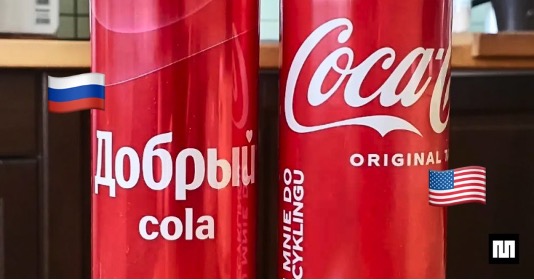#180 The Coca-Cola Paradox in Russia
In the contemporary global landscape, the question of whether a country can be fully isolated through sanctions, particularly when it resists disengagement from the global economy, becomes a complex puzzle. The Russian example underscores the challenges of achieving complete isolation.
Following the invasion of Ukraine in February 2022, the United States, Canada, the European Union, and some other democratic countries, which account for a large portion of the world’s GDP, imposed sanctions on Russia. In solidarity with Ukraine, numerous Western multinational corporations declared the withdrawal of their operations from Russia as well. Coca-Cola, among those suspending operations, presented a unique case. The parent company was not directly engaged in business within Russia; instead, all Russian Coca Cola plants were under the ownership of the Greek-Swiss Firm Coca Cola Hellenic Bottling Company (HBC), wherein the American Coca-Cola held a stake. Despite Coca-Cola’s withdrawal, HBC chose to sustain its Russian operations, rebranding as Multon Partners and introducing a new Russian cola called Dobry Cola. Notably, the taste of the new cola closely mimicked the original Coca-Cola.
Before the invasion, Coca-Cola dominated the soft drink beverages market with approximately 48% market share. Subsequently, post-withdrawal, Dobry Cola claimed a significant 34% of the market, attributed to its well-established distribution network and effective marketing strategies. Notably, 14% of the market share is now occupied by original Coca-Cola imported from countries like the UAE, Turkey, Poland, Hungary, Georgia, etc. This unexpected trade, facilitated by Russian businesses with no direct connection to the Coca-Cola Corporation, adds an intriguing dimension to the post-invasion market dynamics.
The Coca-Cola example in Russia serves as a compelling illustration of the difficulty of isolating a country for its conduct when it has become fully integrated into the global economy over the past 30 years.
(Case written by Agassy Manoukian, American University of Armenia)

March 22, 2024 @ 11:33 am
This case highlights the challenges many Multinational Corporations (MNCs) have with CSR (Corporate Social Responsibility) which involves a commitment by ALL businesses in ALL locations of all the companies in the MNC. The goal is to act ethically while contributing to economic development and improving the quality of life for their workforce, local communities, and society at large.
The Coca-Cola Company – generally – exemplifies this commitment through initiatives like the United Nations Global Compact and its support for HIV-affected communities and disaster-stricken countries.
However, this paradox that happened in Russia highlights the delicate balance MNCs must strike between profit-driven operations and responsible citizenship. After invasion of Ukraine Coca-Cola found a way how to keep their operations running in Russia through a partner by which they tried to keep a good image for corporation itself without understanding the lack of solidarity by this move. This practice has a pale aftertaste and to it underscores the need for transparent communication, genuine engagement with local communities, and continuous improvement in sustainability practices.